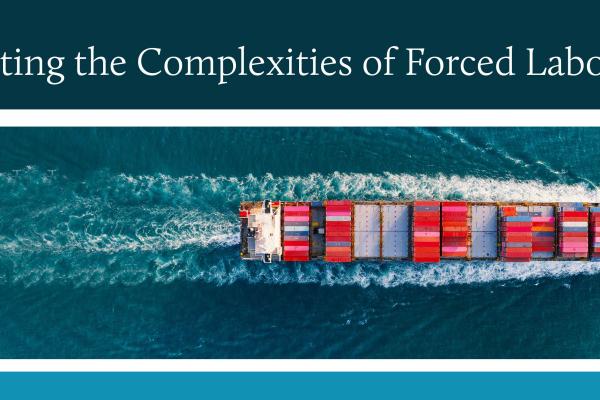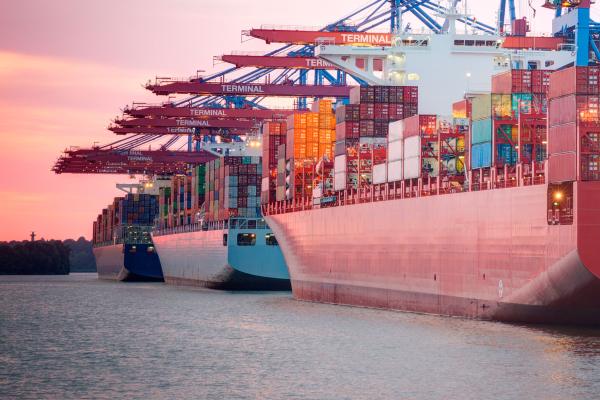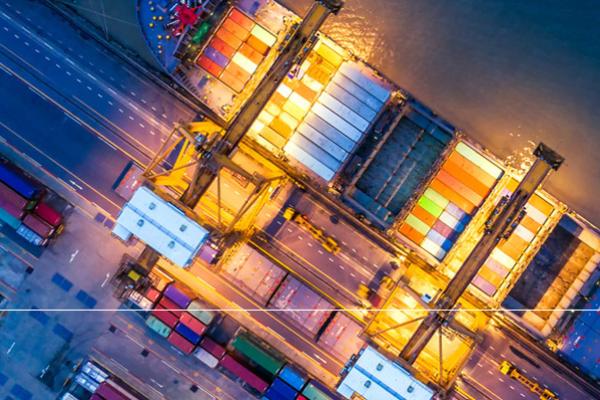Insights on International Trade & Investment
864 total results. Page 5 of 35.
This podcast comes on the heels of a whirlwind weekend of tariff headlines from Washington, DC, and reactions around the globe. It begins with news of the tariff “reprieve” for imports from Canada and Mexico and quickly turns to the impact of such tariffs on the North American vehicle and vehicle parts industries.

ArentFox Schiff’s Forced Labor Enforcement Task Force published its first annual report last year to help multinational companies navigate the complexities of forced labor laws in the United States and in countries around the world. Since our last report, forced labor enforcement has developed rapidly, with many of our predictions materializing in 2024.

As of this writing on February 3, the president’s long awaited new tariffs have been officially announced via Executive Orders (EOs) from the White House for Canada, Mexico, and China. They confirm media reports of new 25% tariffs for imports from Canada (except energy resources) and Mexico and 10% for imports from China entered on and after February 4. Canadian energy resources will be subject to a 10% tariff. The rates of duty are in addition to any other duties, fees, exactions, or charges applicable to such imported articles.
President Trump is focused on immigration compliance, including I-9 compliance. The federal Form I-9 is the form that every employer has to complete for every paid employee within their first three days of employment.
Join Ucheora Onwuamaegbu as he speaks on a panel at the American Society of International Law Conference.
At the Oval Office signing ceremony on January 20, President Trump announced plans to impose 25% tariffs on imports from Mexico and Canada. The following day, President Trump extended this tariff threat to include additional 10% tariffs on goods from China, further escalating trade tensions with these key trading partners. According to Trump, the tariffs on China, Canada, and Mexico will take effect on February 1. However, there is still uncertainty about whether this deadline will be met or if it is being used as a negotiation tactic.
Health Care Practice Leader Douglas A. Grimm was quoted by Law360, urging hospital leaders and lawyers across the country to start implementing new strategies after the Trump Administration pulled back a Biden Administration 2021 directive to avoid immigration enforcement at certain locations, including hospitals.
The US Customs Agency, established in 1789 under the US Department of the Treasury, has undergone significant transformations throughout its history. Initially focused on revenue collection and trade regulation, the agency’s role expanded to include national security functions following its integration into the US Department of Homeland Security (DHS) in 2003 pursuant to the Homeland Security Act of 2022 (HSA).
President Trump has been explicit in his focus on immigration compliance and enforcement. Employers should expect increased workplace enforcement actions, including US Immigration and Customs Enforcement (ICE) raids and unannounced workplace enforcement actions.
The United States has prevailed in a dispute against Mexico under the United States-Mexico-Canada Agreement (USMCA) concerning genetically modified (GM) corn.
It is that time of year again when employers have to decide who they are sponsoring for an H-1B visa.
Join International Trade & Investment associates James Kim and Mario Torrico for an in-person event with the Professional Association of Exporters and Importers.
Join Leah Scarpelli and former US Congressman Philip English for a Canadian Institute of Steel Construction webinar.
International Trade & Investment associate Mario Torrico will join a panel discussion at the Winter Fancy Food Show in Law Vegas, NV on January 19, 2025.
As President-elect Trump continues to shape his economic plan with significant tariff policies, it’s crucial for businesses to stay informed about the potential risks and opportunities his announcements may bring.
As President-elect Trump prepares to take office on January 20, the construction industry must anticipate shifts in trade policy, particularly concerning tariffs. These changes are expected to have significant implications for various sectors, including energy and clean technology.
As President-elect Trump prepares to take office for a second term, his presidency will undoubtedly reshape US international trade policy, impacting US and foreign manufacturing. We can expect that his administration will implement new and increased tariffs. Whether those tariffs come in the form of universal tariffs, tariffs targeted to a few countries, industries or products, or tariffs targeted to certain companies will likely be known once Trump assumes office. The solar industry, particularly solar products originating from China, is expected to be a focus point of potential future tariff measures.
As President-elect Donald Trump prepares to assume office on January 20, numerous tariff proposals have already been put forward that could significantly impact the electric vehicle (EV) and battery supply chain industry. Differentiating between the potential for immediate tariff actions and those requiring more time to implement is critical for companies that are in preparation of such actions.
The US Department of Commerce’s Bureau of Industry and Security (BIS) introduced its long-anticipated (some would say dreaded) Framework for Artificial Intelligence Diffusion (the AI Diffusion Rule) on January 15. Highlights include the first-ever export controls on artificial intelligence (AI) models and worldwide license requirements for advanced chips.

Welcome to the January 2025 issue of “As the (Customs and Trade) World Turns,” our monthly newsletter where we compile essential updates from the customs and trade world over the past month. We bring you the most recent and significant insights in an accessible format, concluding with our main takeaways — aka “And the Fox Says…” — on what you need to know.
The US government signals careful optimism with a new general license authorizing some previously prohibited transactions, including many (but not all) transactions with Syrian governing institutions, for the next six months.
Government Relations Co-Leader Dan Renberg, Co-Chairs Phil English and Byron Dorgan, and Partner Elizabeth Horner will join the Brazilian-American Chamber of Commerce in a webinar examining the implications of the 2024 Presidential and Congressional election results on January 8, 2025.
A quick glance on the Zero Emission Transportation Association (ZETA) homepage reveals an impressive list of well-known corporate icons of the electric vehicle (EV) world.
On October 25, the International Centre for Settlement of Investment Disputes (ICSID) released its 2024 Annual Report, which highlights significant trends and statistics in ICSID’s cases during the fiscal year ending on June 30, 2024 (FY2024). ICSID administered 341 cases in that period (which was just five short of 346 cases in FY2022), marking the second-highest caseload in its history — a testament to its pivotal role in global investment dispute resolution.

Welcome to the December 2024 issue of “As the (Customs and Trade) World Turns,” our monthly newsletter where we compile essential updates from the customs and trade world over the past month. We bring you the most recent and significant insights in an accessible format, concluding with our main takeaways — aka “And the Fox Says…” — on what you need to know.